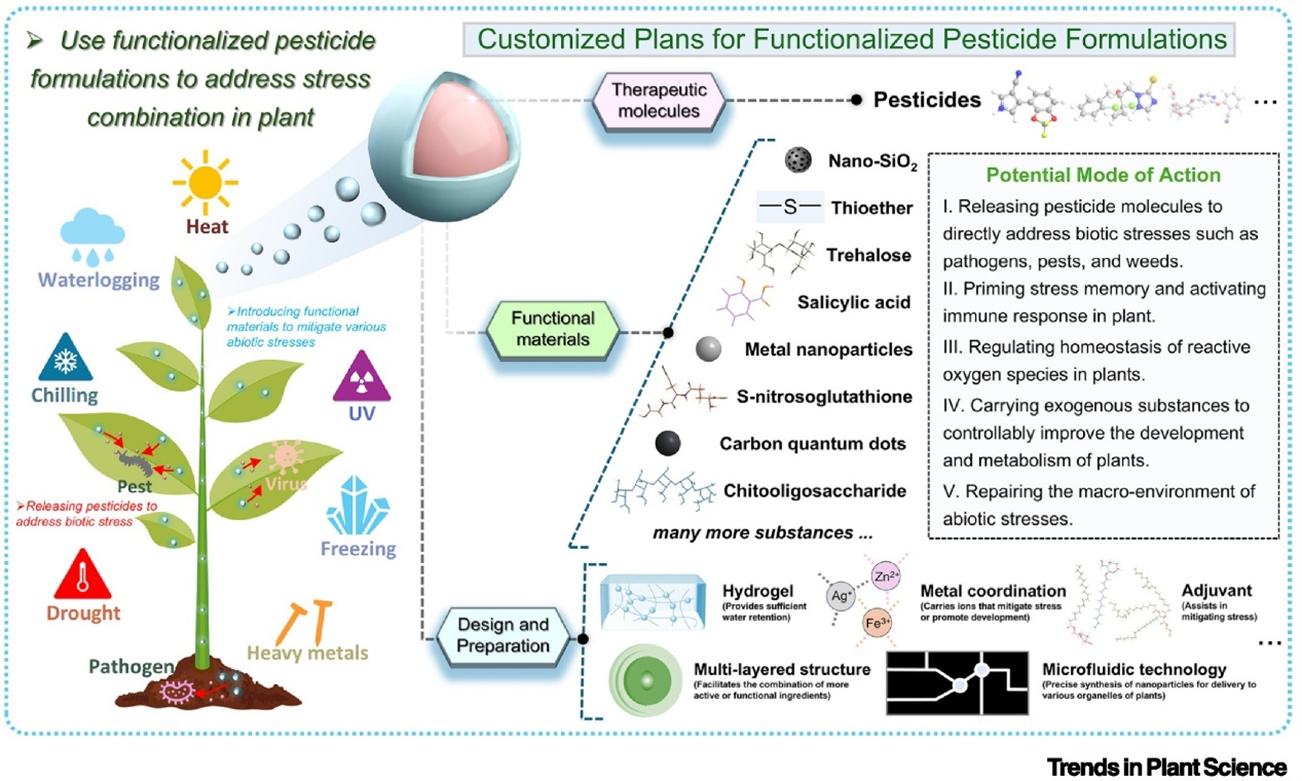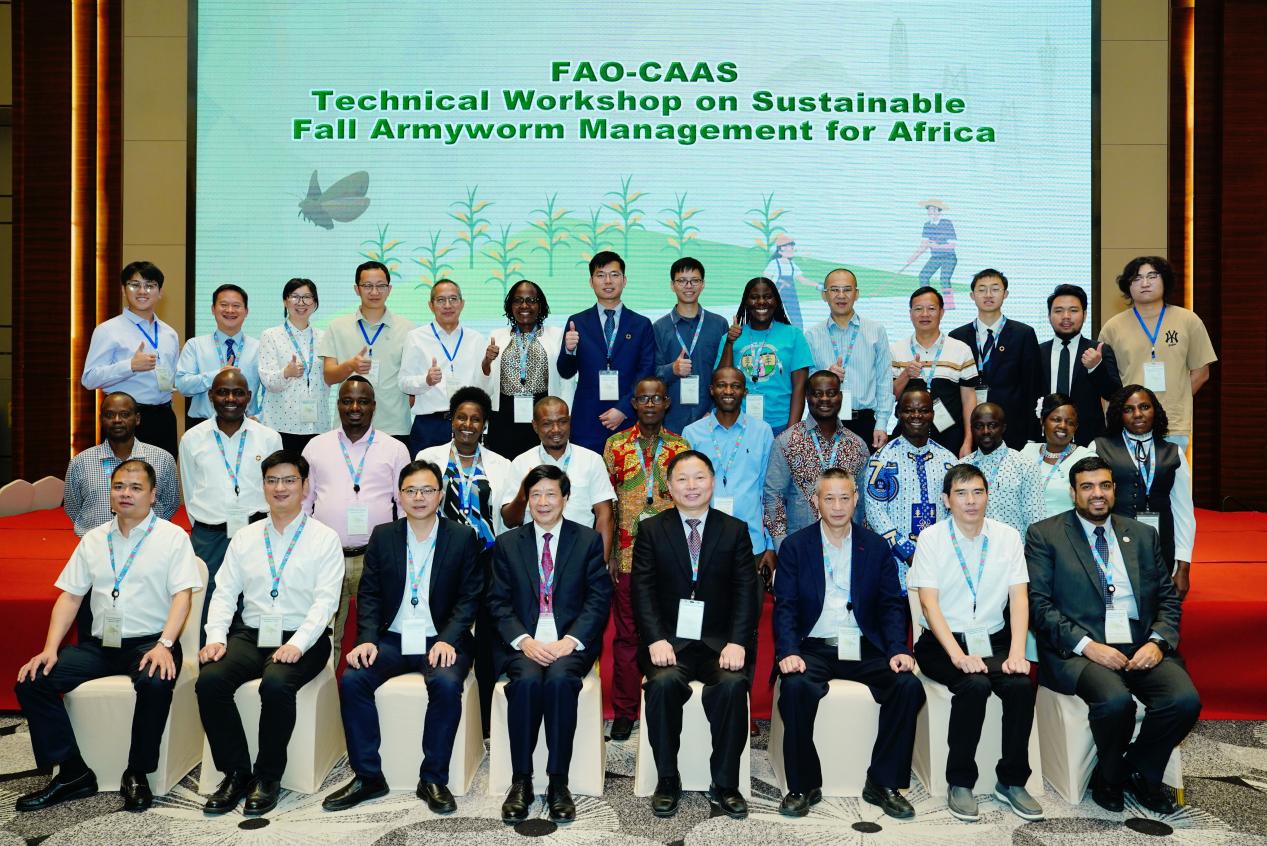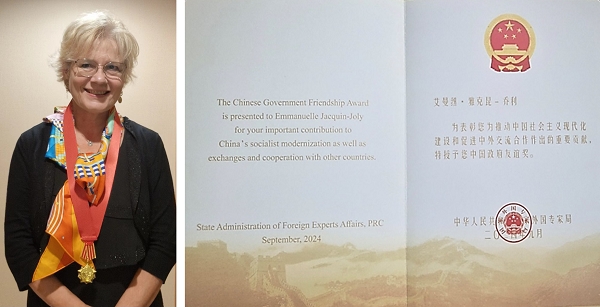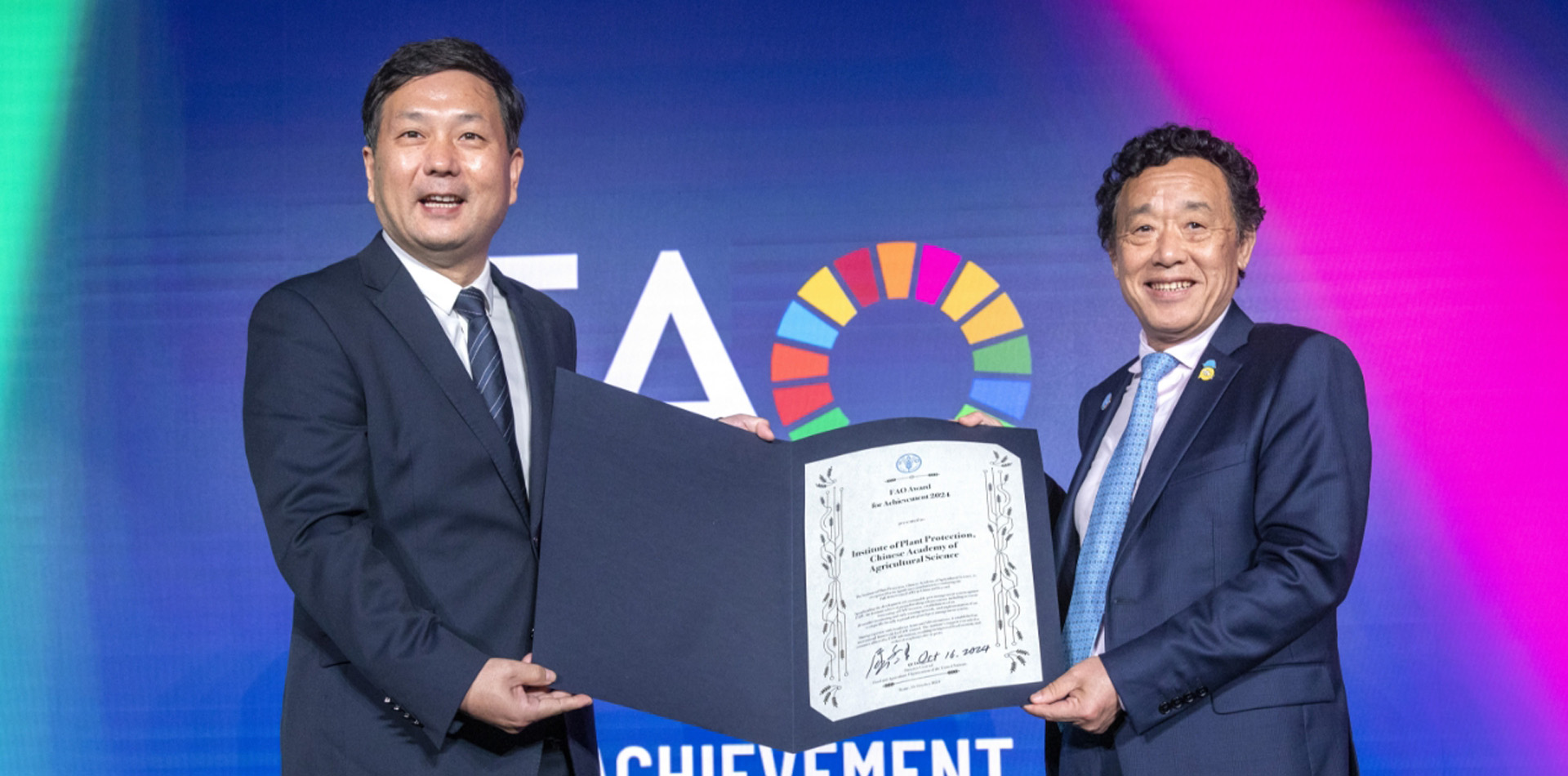IPPCAAS Proposed New Perspective on Using Functionalized Pesticide Formulations to Address Plant Stress Combination
The Pesticide Molecular Target and Green Pesticide Innovation Team of the Institute of Plant Protection, Chinese Academy of Agricultural Sciences (IPPCAAS), recently published a perspective article titled " 'Microscopic engineering vehicles' for plants under stress combination" in Trends in Plant Science , a prestigious journal under Cell Press. The paper explored the use of functionalized pesticide formulations to simultaneously combat biotic and abiotic stress combinations, offering an innovative solution to the challenges posed by global climate risks.
Climate change and shifts in cropping systems have made it increasingly common for plants to face combined biotic (pests, diseases, weeds) and abiotic (drought, salinity, heat) stresses. Unlike plants under single stress conditions, those exposed to stress combinations exhibit unique responses in reactive oxygen species (ROS) signaling, hormone regulation, and stomatal activity. These complex interactions require more intelligent, efficient, and comprehensive strategies beyond the capabilities of single-purpose agrochemicals.
Inspired by research by the team and global peers, the paper introduced the concept of stress-mitigating pesticide formulations for plants under stress combinations. These formulations act as "microscopic engineering vehicles," delivering pesticides to combat biotic stress while simultaneously repairing abiotic damage in specific plant parts and environmental conditions. The proposed custom formulations incorporate functionalized carrier materials, enabling plants to tolerate stress, enhance photosynthesis, and promote growth. The preparation process integrates functional group modification, structural and morphological optimization, and adjuvant support to improve ROS homeostasis, nutrient delivery, and stability under adverse conditions.
Additionally, the study highlighted the importance of designing responsive release mechanisms to sequentially address different components of stress combination, accelerating stress alleviation. While the concept presents a potential pathway to mitigate the crises resulting from climate change and cropping system adjustments, achieving this goal will require extensive laboratory and field research over the long term.
Ph.D. candidate Shangguan Wenjie is the first author of the paper, with Professor Cao Lidong as the corresponding author. Professor Huang Qiliang provided guidance for the research. The study was supported by the National Key R&D Program of China.

-
 IPPCAAS Successfully Organized the FAO-CAAS Technical Workshop on Sustainable Fall Armyworm Management for Africa in Guangdong
IPPCAAS Successfully Organized the FAO-CAAS Technical Workshop on Sustainable Fall Armyworm Management for Africa in Guangdong -
 IPPCAAS Hosts Symposium for CAAS-INARE International Joint Laboratory for Plant Protection to Congratulate Professor Emmanuelle Jacquin-Joly on Receiving the Chinese Government Friendship Award
IPPCAAS Hosts Symposium for CAAS-INARE International Joint Laboratory for Plant Protection to Congratulate Professor Emmanuelle Jacquin-Joly on Receiving the Chinese Government Friendship Award -
 IPPCAAS Wins the 2024 FAO Achievement Award
IPPCAAS Wins the 2024 FAO Achievement Award -
 China-Laos Training Workshop on Integrated Management of Destructive Crop Pests and Diseases Successfully held in Laos
China-Laos Training Workshop on Integrated Management of Destructive Crop Pests and Diseases Successfully held in Laos
